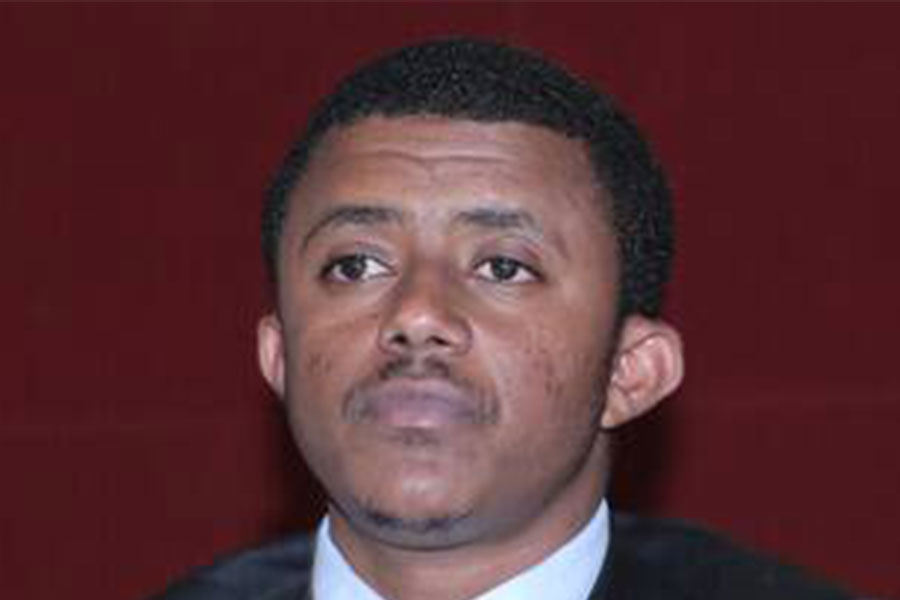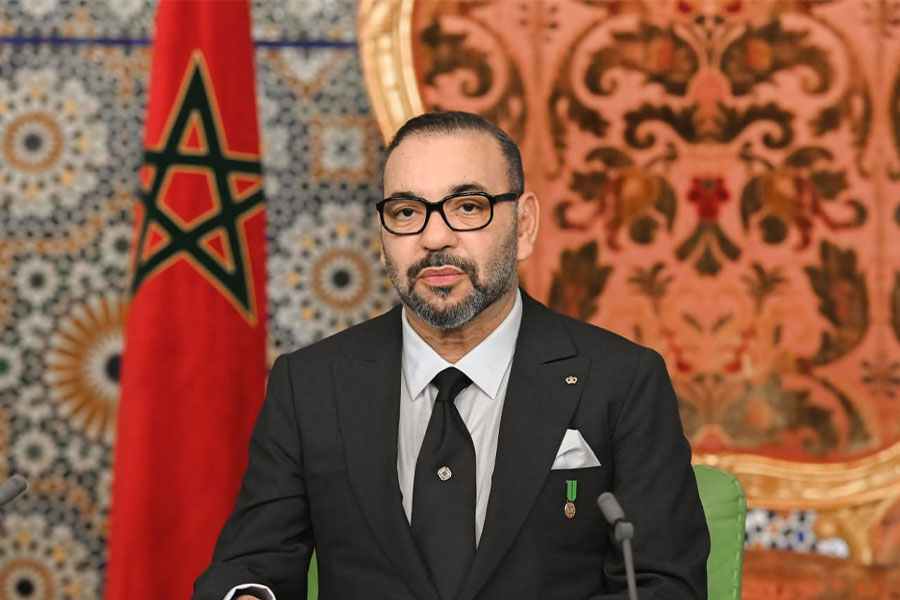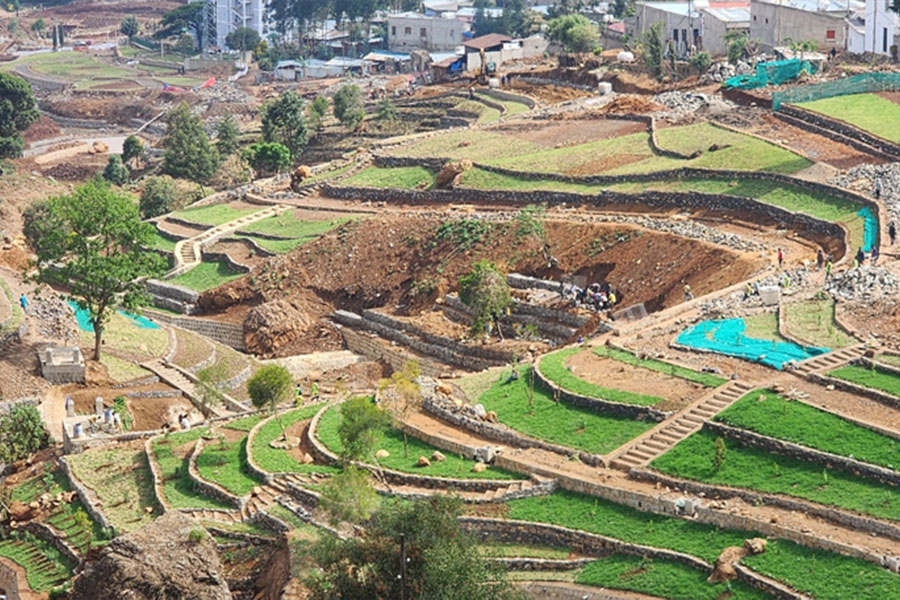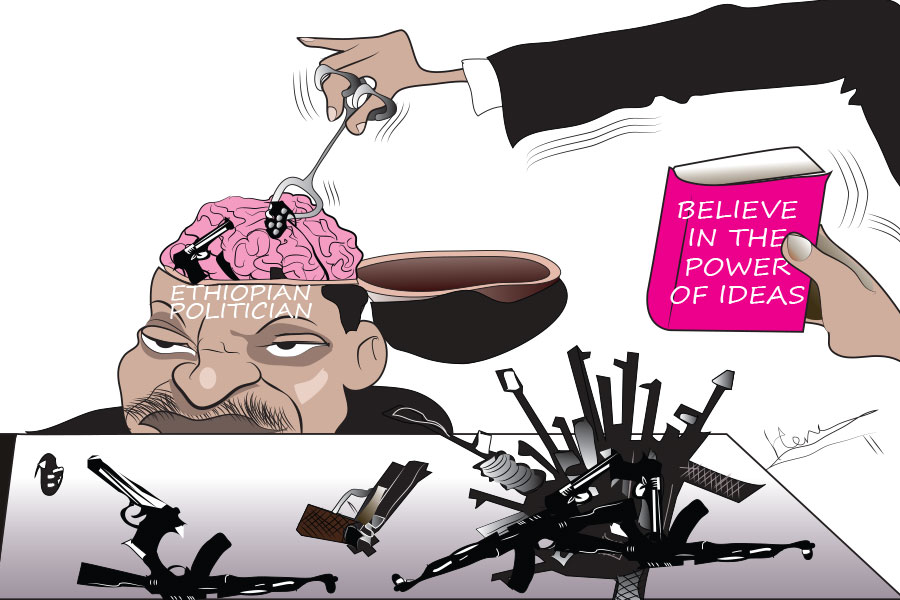
Commentaries | Dec 19,2021
Nov 29 , 2020
By Eden Sahle
When war and transgressions of a political nature are still ongoing, apologising often seems to be the hardest thing to do for leaders. Ethiopia is no exception. But it is a sign of maturity that our troubled political culture should develop to progress forward.
Undoubtedly, even for a public that wants to see redress for the past, acts of penance essentially seem insignificant compared to justice served at the courts. Partly, this is because punishment resonates louder and partially since political apologies are usually for victims long dead and damage already inflicted a while ago.
Important not to forget as well is that apology is heavily political, and every statement made matters. Many, including leaders, perceive apologising as an admittance of wrongdoing not by a ruling class of a particular time but an assertion of guilt for an entire group of people – making it a highly unpopular political move. Such a matter is all the more complicated in a country such as Ethiopia where strength is idolised in terms of aggressive behaviour.
Still, apologies, never a simple move, are critical to healing a society slighted by the many instances of hardship throughout its history. A political apology can turn enmity into a national triumph. It can speak to vast swaths of the public that have felt victimised and humanise and put into perspective those that are believed to have done wrong.
This does not entail that leaders should avoid responsibility for an apology. Leaders are accountable not only for their behaviour but also for an entire nation. It is their job to keep the country and the people from widespread and enduring harm. An apology should be a measure of last resort, for wrongs that have been committed without intention.
Thus, when leaders speak for themselves as well as for their supporters and the country, their contrition has broad implications. Leadership apology is not only personal but also political and institutional. It is an act in which every expression matters and every word becomes part of the public consciousness. Unlike what many locals might think, apologising helps leaders in other parts of the world to thrive and earn more public trust.
Take, for example, the two economic giants of Europe. From the 1960s onward, Germany apologised verbally, and in action, showing collective grief for the crimes that took place during its Nazi era in the 1930s and 1940s. Not long ago, former Prime Minister of the United Kingdom, David Cameron, apologised on behalf of the British government for the Bloody Sunday massacre that occurred in 1972 in Northern Ireland. It was an incident where soldiers shot at unarmed civilians during a rally.
Leaders' public statements can make or tear the individual and institutional reputations of a nation. They can quickly gain lost public trust when they acknowledge the problem and accept responsibility. It also connects leaders with the public as they feel the pain of people and even apologises for it.
Take also former President Bill Clinton’s apology, admitting his extramarital relationship with Monica Lewinsky, a White House intern. At the end of his presidency, Clinton departed with one of the highest approval ratings for an outgoing president in history.
Remorse is an armour that Ethiopians can make use of in our political engagements. As humans, we are all hardwired to empathise with others when they apologise. Leaders need to set the example, show how to be more considerate of others to create a sense of justice and fairness. Leaders’ habits are contagious, placing extra responsibility on them to often act properly.
Having a political system that applies contrition rather than aggressive tactics will help us avoid ongoing devastation and better focus on the job of developing the nation. The nation as a whole needs to learn to apologise to connect and feel safer with others. Holding onto grudges never healed anyone but keeps us in a vicious circle of renewed pain.
It is essential for our leaders to feel guilty and for them to change problematic behaviours. Neither they nor us should make the habit of apology a shameful act but a courageous deed that affirms dignity and human value.
PUBLISHED ON
Nov 29,2020 [ VOL
21 , NO
1074]

Commentaries | Dec 19,2021

Radar | Jul 29,2023

Advertorials | Jun 03,2025

View From Arada | Jun 28,2025

Sunday with Eden | Feb 19,2022

Commentaries | Jun 19,2021

Editorial | Jun 29,2019

Radar | Sep 10,2021

Life Matters | Apr 17,2021

Viewpoints | Jun 07,2020

Photo Gallery | 177566 Views | May 06,2019

Photo Gallery | 167773 Views | Apr 26,2019

Photo Gallery | 158442 Views | Oct 06,2021

My Opinion | 136988 Views | Aug 14,2021
Commentaries | Oct 25,2025

Dec 22 , 2024 . By TIZITA SHEWAFERAW
Charged with transforming colossal state-owned enterprises into modern and competitiv...

Aug 18 , 2024 . By AKSAH ITALO
Although predictable Yonas Zerihun's job in the ride-hailing service is not immune to...

Jul 28 , 2024 . By TIZITA SHEWAFERAW
Unhabitual, perhaps too many, Samuel Gebreyohannes, 38, used to occasionally enjoy a couple of beers at breakfast. However, he recently swit...

Jul 13 , 2024 . By AKSAH ITALO
Investors who rely on tractors, trucks, and field vehicles for commuting, transporting commodities, and f...

Oct 25 , 2025
The regulatory machinery is on overdrive. In only two years, no fewer than 35 new pro...

Oct 18 , 2025
The political establishment, notably the ruling party and its top brass, has become p...

Oct 11 , 2025
Ladislas Farago, a roving Associated Press (AP) correspondent, arrived in Ethiopia in...

Oct 4 , 2025
Eyob Tekalegn (PhD) had been in the Governor's chair for only weeks when, on Septembe...

Oct 25 , 2025 . By YITBAREK GETACHEW
Officials of the Addis Abeba's Education Bureau have embarked on an ambitious experim...

Oct 26 , 2025 . By YITBAREK GETACHEW
The federal government is making a landmark shift in its investment incentive regime...

The National Bank of Ethiopia (NBE) is preparing to issue a directive that will funda...

Oct 26 , 2025 . By SURAFEL MULUGETA
A community of booksellers shadowing the Ethiopian National Theatre has been jolted b...